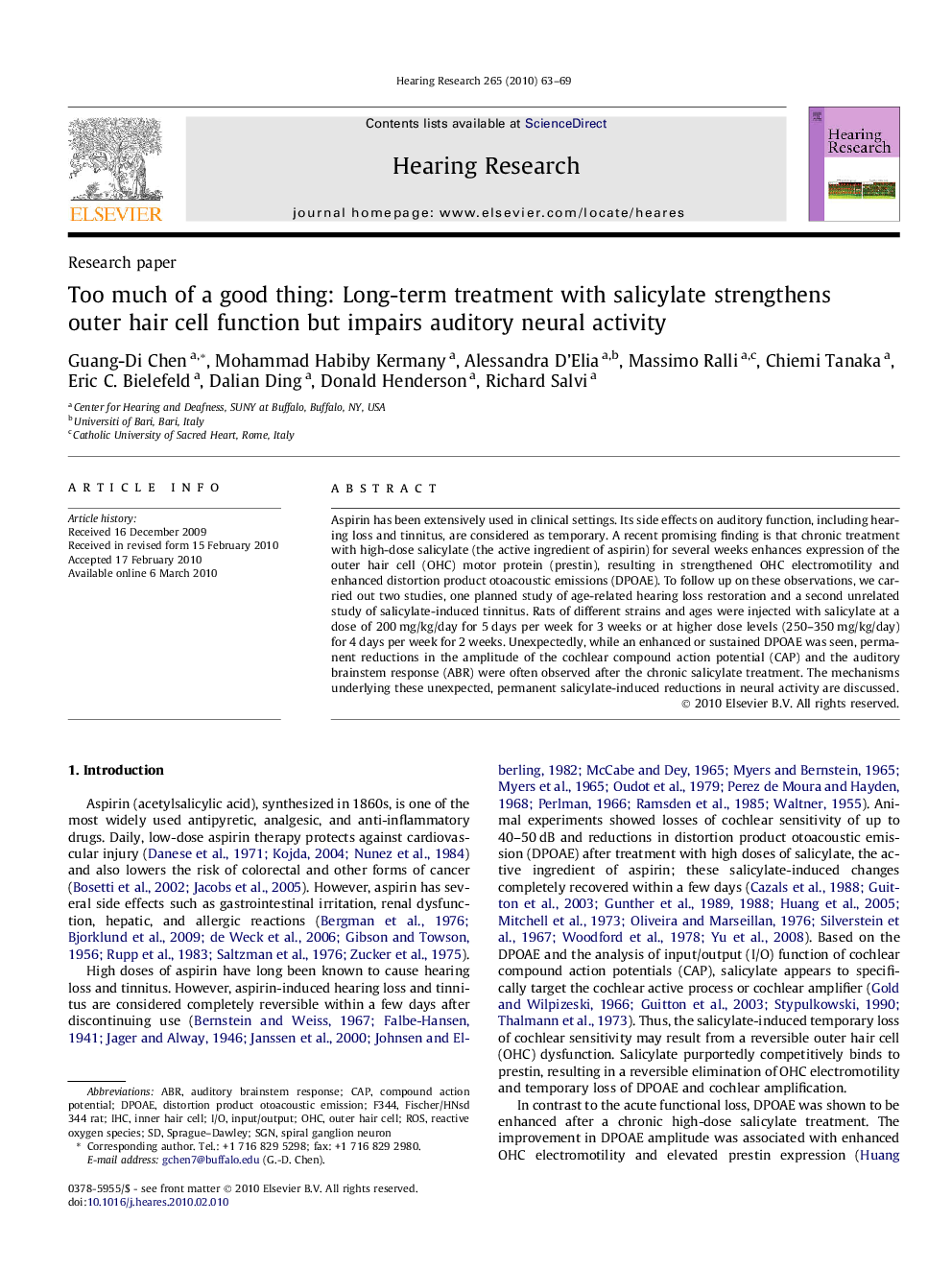| Article ID | Journal | Published Year | Pages | File Type |
|---|---|---|---|---|
| 4355682 | Hearing Research | 2010 | 7 Pages |
Abstract
Aspirin has been extensively used in clinical settings. Its side effects on auditory function, including hearing loss and tinnitus, are considered as temporary. A recent promising finding is that chronic treatment with high-dose salicylate (the active ingredient of aspirin) for several weeks enhances expression of the outer hair cell (OHC) motor protein (prestin), resulting in strengthened OHC electromotility and enhanced distortion product otoacoustic emissions (DPOAE). To follow up on these observations, we carried out two studies, one planned study of age-related hearing loss restoration and a second unrelated study of salicylate-induced tinnitus. Rats of different strains and ages were injected with salicylate at a dose of 200Â mg/kg/day for 5Â days per week for 3Â weeks or at higher dose levels (250-350Â mg/kg/day) for 4Â days per week for 2Â weeks. Unexpectedly, while an enhanced or sustained DPOAE was seen, permanent reductions in the amplitude of the cochlear compound action potential (CAP) and the auditory brainstem response (ABR) were often observed after the chronic salicylate treatment. The mechanisms underlying these unexpected, permanent salicylate-induced reductions in neural activity are discussed.
Keywords
Related Topics
Life Sciences
Neuroscience
Sensory Systems
Authors
Guang-Di Chen, Mohammad Habiby Kermany, Alessandra D'Elia, Massimo Ralli, Chiemi Tanaka, Eric C. Bielefeld, Dalian Ding, Donald Henderson, Richard Salvi,
